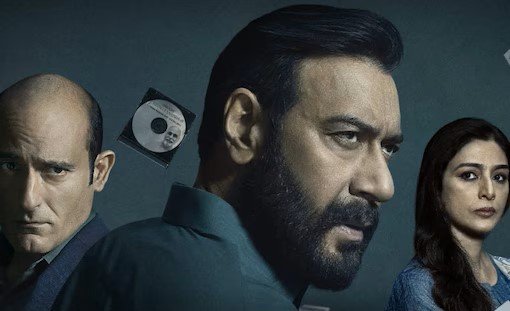
Introduction
Georgekutty, an orphan who left school early, became a successful businessman in Rajakkad, running a cable TV service. His life centered around his wife Rani and their daughters, Anju and Anu. When Anju accidentally killed Varun, the son of IG Geetha Prabhakar, who had tried to blackmail her, Georgekutty devised a plan, burying Varun’s body under a new police station and creating a false alibi. Despite intense police scrutiny, his plan held, protecting his family.
Immanuel Kant, a key figure in modern Western philosophy, is known for his “Categorical Imperative,” a principle of deontological ethics that states moral actions must be universalizable. For instance, lying cannot be a universal law because it would undermine truth. Kant emphasized that humanity should be treated as an end in itself, not as a means, recognizing the inherent worth of individuals. In his third version of the principle, Kant highlights autonomy, suggesting that rational beings create universal moral laws and must act according to rules they would logically adopt.[i]
Description & Identification of legal and political themes in “Drishyam 1
Moral Dilemmas for Georgekutty
Examine Georgekutty’s behavior, paying particular attention to the extent he takes to shield his family following Varun’s unintentional passing. Kantian ethics would contest the universality of Georgekutty’s choices, which include lying and deceit, as ethically acceptable behaviors.
Rani’s role and innocence
As Georgekutty’s wife, Rani stands for both maternal protection and innocence. She can apply Kant’s theory of perfect and imperfect responsibilities to her role in upholding her husband’s moral dubious decision. Georgekutty’s daughter Anju copes with the shock of Varun’s death and the cover-up that followed. Kantian ethics could look at how her father’s acts have damaged her moral integrity and whether she is a victim of circumstance or a willing participant in moral transgression.[i]

Justice and Varun’s Character
Varun’s actions initiate the plot, and his character can be examined via the prism of Kant’s conception of justice. We can examine the ethical ramifications of his blackmailing and the outcome that follows.
Police Investigation and Ethical Boundaries
Kant’s idea that considering people as a means to a goal in and of themselves can be used to analyze the police’s unrelenting pursuit, particularly that of IG Geetha Prabhakar. The techniques employed in the inquiry, such as such as threats and coercion, are subject to Kantian criticism.[i]
Philosophical Analysis (Kant, 1797)
Corruption and Social Class
Drishyam addresses the relationship between corruption and social class, especially as it relates to Varun, whose rich upbringing affects the justice system. This theme is especially pertinent to the power dynamics and class struggle theories of Karl Marx. According to Marx, social and economic institutions influence people’s chances and experiences in society.
Veracity and Lie
Georgekutty fabricates a story to protect his family after a tragic incident. This clashes with Immanuel Kant’s Categorical Imperative, which emphasizes truthfulness as a moral duty. The movie raises ethical dilemmas about lying and the truth in legal proceedings. According to Kantian ethics, Georgekutty’s deception violates trust and moral integrity, as lying is intrinsically wrong, regardless of motive, sparking questions about the morality of deception in family protection.
The Public’s View of the Law
The movie highlights how societal beliefs impact law enforcement and judicial proceedings. Community biases influence the investigation, showing that public opinion plays a significant role in the justice system. This raises questions about the relationship between legal effectiveness and societal perceptions.
Accountability and Impact
Georgekutty’s actions prompt reflection on moral and legal accountability. His drive to protect his family brings up issues of culpability, exploring themes of moral responsibility and the consequences of personal decisions within legal philosophy.
Categorical Imperative
Kant’s Categorical Imperative, a universal moral law, states that actions are ethical if they can be willed as universal laws without contradiction. This is central to his philosophy of moral conduct.[i]
Reason and Autonomy
Kant stresses autonomy, viewing individuals as rational agents capable of making moral choices. Autonomy is the basis of true moral action, and in law and politics, people must be treated as ends in themselves, deserving respect and freedom to pursue their own interests.
Perpetual Peace
In “Perpetual Peace,” Kant outlines a vision for lasting global peace, advocating respect for human rights, democratic governance, and adherence to international law. He believed moral obligations transcend national borders, and people have the right to resist oppressive regimes.[i]
Character 1: Georgekutty
In Drishyam, Georgekutty, a local cable TV operator, embodies the struggle of an ordinary man thrust into extraordinary circumstances. His character navigates the tension between moral obligations to his family and the confines of the legal system. While his actions have been examined through a Kantian ethical lens, alternative perspectives offer deeper insights into his intentions and complexities.
Contextual Ethics
Georgekutty’s situation illustrates a form of contextual morality where circumstances, rather than rigid moral principles, guide ethical decisions. Operating within an imperfect system where justice doesn’t always align with the law, he prioritizes his family’s well-being over societal norms. This raises the question of whether moral decisions can be fluid and shaped by the specific context rather than absolute rules.
Ethics of Sacrifice
From a selflessness perspective, Georgekutty’s willingness to sacrifice his moral integrity for his family’s safety highlights a deep commitment to protecting loved ones. His actions, though morally ambiguous, are driven by love and devotion, aligning with ethical viewpoints that prioritize the duty to safeguard family, even if it means breaking the law.[i]
Methodical Approach
Georgekutty’s strategic and calculated actions showcase his flexibility and resourcefulness in confronting challenges. His ability to navigate the legal system reflects a pragmatic approach, where success is measured by tangible outcomes rather than strict moral adherence. This perspective emphasizes situational awareness and adaptability when faced with moral dilemmas.[i]
Character 2: Varun Prabhakar
Privilege and Consequences
Varun embodies the themes of privilege and the consequences of abusing power. As someone from a powerful family, he misuses his status by blackmailing Anju, showing a lack of respect for boundaries and highlighting the vulnerability of those without privilege. His entitlement leads to his downfall, portraying how unchecked privilege can result in tragic outcomes.
Moral Ambiguity
Varun is depicted as morally ambiguous—both a victim and an antagonist. His manipulative behavior underscores a darker side of human nature, raising questions about morality, responsibility, and the ethics of revenge. While his actions provoke Georgekutty’s drastic measures, they also encourage reflection on the cyclical nature of violence and the moral weight of retaliation.
Impact on Others
Varun’s role significantly influences Anju’s character development, triggering events that test her moral integrity and loyalty to her family. The trauma he inflicts and the subsequent cover-up illustrate broader societal issues surrounding violence, victimization, and familial responsibility in the face of moral crises.
Contradictions in Character
Despite his negative traits, Varun evokes a degree of sympathy. Raised in a privileged environment, he is shaped by societal pressures and expectations. This complexity adds depth, sparking discussions about how privilege and upbringing influence behaviour and character, further complicating the moral judgment of his actions.[i]
Character 4: Head Constable S. Madhavan
In Drishyam, Head Constable S. Madhavan, played by Kunchan, illustrates the complexities of moral duty and justice through a Kantian lens. Kant’s philosophy emphasizes acting in accordance with moral duty, guided by reason. Madhavan’s support for Georgekutty reflects this ideal, as he shows empathy and recognition of Georgekutty’s plight.
Tension Between Legal and Moral Justice
Kantian ethics distinguishes between legal justice (following the law) and moral justice (acting according to duty and respect for others). Madhavan’s character illustrates this tension. As a police officer, he is bound by legal obligations, but his understanding of Georgekutty’s moral dilemma suggests that sometimes justice goes beyond simply adhering to the law.
Ethical Dilemmas and Decision-Making
Madhavan faces ethical dilemmas inherent in his role as an officer. His support for Georgekutty forces him to navigate conflicts of interest. Kant’s ethics would suggest that Madhavan should adhere to universal moral principles, and the value of truthfulness complicates his situation.

Philosophical Insights: Constructing Kantian Arguments
1. The Significance of Intentions in Moral Behaviour
Kantian ethics places great emphasis on intentions. For Kant, an action’s moral worth is determined by its intention, not by its results. A morally right action is motivated by duty, not by personal motives. In Drishyam, Georgekutty’s intentions are to protect his family, driven by love and fear, rather than moral duty. Kant would argue that despite Georgekutty’s good intentions, his manipulative actions are morally wrong because they cannot be universally justified as ethical principles
Comparison
Kant would contend that Georgekutty’s actions, though aimed at protecting his family, are morally flawed because they involve deception, which cannot be a universal law. While the film suggests that protecting one’s family justifies such actions, Kant would reject this view based on the principle that moral integrity must not be compromised for any reason, even familial protection.[i]
2. Independence and the Moral Code
Kant stresses the importance of autonomy, the ability to act according to one’s rational moral duty without external influence. Georgekutty’s careful planning and manipulation of evidence might be seen as a violation of his own moral autonomy. By choosing to break the law for his immediate goal, Georgekutty undermines his moral responsibility to act according to universal principles of justice.
Analysis
Although the film encourages viewers to sympathize with Georgekutty’s plight, Kant would argue that such actions are morally dubious, as they sacrifice moral autonomy for personal survival. The film highlights how human autonomy is often constrained by real-life circumstances, but Kant’s ideal emphasizes that moral duty should not be compromised.
3. Human Dignity and the Kingdom of Ends
Kant’s concept of the “Kingdom of Ends” envisions a society where rational beings respect each other’s dignity and treat one another as ends, not as means. Varun’s actions, for instance, would be condemned by Kant because they violate the principle of respecting human dignity by treating others as mere instruments for personal gain.
Evidence and Analysis
In Drishyam, respect for human dignity is frequently undermined, whether through Varun’s exploitation or Georgekutty’s manipulation of the law.
According to Kant’s Kingdom of Ends, all actions must respect the autonomy and dignity of others. The film presents a more complex and gritty portrayal of human relationships, questioning whether true justice can be achieved in a society where survival often takes precedence over moral ideals.
Critical Assessment
1. Kantian Theories’ Internal Coherence and Consistency
Kant’s Stiff Moral Framework
Immanuel Kant’s deontological ethics are characterized by their inflexibility, particularly in light of the categorical imperative, which holds that deeds must be performed out of obligation and must be generally applicable. His philosophical framework is internally consistent since moral actions must always follow these universal principles, regardless of the situation or outcome.
Application to Drishyam
This rigidity adds tension as Kant’s theories are applied to the movie. Even though Georgekutty’s actions are morally dubious by Kantian criteria, the story of the film portrays them as necessary, if not heroic. The moral ambiguity of the movie stands in stark contrast to Kant’s unambiguous ethical framework, highlighting the possible drawbacks of applying such a dogmatic theory to intricate real-world situations.
Coherence Problems
The movie’s portrayal of morality calls into question the coherence of Kantian ethical dilemma in which it is impractical to follow strict principles. For example, the movie depicts this as an unfair result: Kant’s insistence on sharing the truth would have caused Georgekutty’s family to split apart right away.
2. Casting Doubt on the Fundamental Premises
Universalizability vs. Contextual Morality
The foundation of Kant’s philosophy is the idea that moral principles can be applied consistently in any circumstance. Drishyam, on the other hand, refutes this by outlining an instance in which these broadly applicable guidelines appear insufficient.
Duty of Care vs. Loyalty to Family
Kant believes that moral Emotions and interpersonal relationships should never come before responsibility. On the other hand, the movie makes the argument that moral obligations occasionally need to be weighed against other factors like love, loyalty, and family protection. This begs the question of whether Kantian ethics can still be applied in circumstances when personal commitments and emotional ties cloud judgment.

3. The Drawbacks and Advantages of Philosophical Analysis
Disadvantages
Lack of Flexibility :
Drishyam’s application of Kantian ethics is severely constrained by this feature. In certain scenes, upholding moral principles strictly appears illogical or even detrimental. The morally dubious situations portrayed in the movie, such as the struggle between stating the truth and ensuring the survival of an innocent family, are difficult for Kant’s theory to account for.
Idealism vs. Realism:
The actual and pragmatic circumstances in Drishyam might not be a good fit for Kant’s idealistic moral philosophy. The storyline of the movie implies that moral judgments are frequently influenced by pragmatic factors and sentimental connections, which Kant’s theory frequently ignores. This idealistic may restrict the application of Kantian ethics to moral conundrums in the actual world, where it is impossible to overlook the context and implications.
Advantages
Emphasis on Moral Integrity:
Kantian ethics, with all its flaws, places a great emphasis on moral integrity and the significance of acting in accordance with widely accepted norms. This offers an insightful contrast to the movie’s more realistic viewpoint, serving as a helpful reminder to audiences that moral constancy is necessary even in trying circumstances.
Integrity versus Naivety in Ethical Reasoning:
The constraints of putting Kant’s regard for humanity into practice Its possible innocence in the face of difficult moral circumstances worries Drishyam. Characters in the movie frequently behave in ways that go against Kant’s theory, yet these behaviors are justified in the context of the narrative.
Conclusion
This review explores the relationship between Immanuel Kant’s philosophical ideas and the movie “Drishyam” highlighting the complexities of moral decision-making. Kantian ethics, with its emphasis on moral duty, integrity, and universal values, provides a solid framework for understanding the moral dimensions of the film’s plot. However, the application of Kant’s rigid moral code reveals its limitations when faced with the intricate and realistic moral dilemmas depicted in “Drishyam”
The film’s characters often find themselves in situations where strictly adhering to moral principles seems impractical or even harmful, challenging Kant’s focus on universalizability and his idealistic view of human relationships. This tension underscores the potential drawbacks of a purely Kantian approach to ethics, especially in real-world scenarios where moral ambiguity prevails.
Bibliography
- https://en.wikipedia.org/wiki/Drishyam
- https://www.cambridge.org/core/journals/german-law-journal/article/kantian-moral-cosmopolitan-approach-to-teaching-professional-legal-ethics/C974B600C07E1878170A663607A7E0F1
- https://humanrightlawreview.in/wp-content/uploads/2024/02/Rethinking-Ethics-Pedagogy-Integrating-Kantian-Ethics-into-Indian-Legal-Education.pdf
- https://academic.oup.com/book/6318?login=false
- https://link.springer.com/referenceworkentry/10.1007/978-94-007-6730-0_431-1
- https://www.thoughtco.com/kantian-ethics-moral-philosophy-immanuel-kant-4045398
- https://www.myworldofmovies.in/drishyams-georgekutty-the-most-iconic-malayalam-movie-character-this-decade/
- https://www.filmcompanion.in/features/the-best-scene-in-drishyam-as-performed-by-mohanlal-kamal-haasan-ajay-devgn-venkatesh-and-ravichandran-malayalam-tamil-telugu-kannada-bollywood-jeethu-joseph-baradwaj-rangan
- https://plato.stanford.edu/entries/kant-moral/#MorWorAc
Other References
- https://markmanson.net/the-one-rule-for-life
- https://corporatefinanceinstitute.com/resources/esg/kantian-ethics/
- https://libguides.brooklyn.cuny.edu/c.php?g=765202&p=5726015
- https://thegreatthinkers.org/kant/introduction/
- https://en.wikipedia.org/wiki/Kantian_ethics
- https://plato.stanford.edu/entries/kant-social-political/
- Kant, I. (2000). Critique of the Power of Judgment (P. Guyer & E. Matthews, Eds. & Trans.). Cambridge University Press.
- Kant, I. (1997). Prolegomena to Any Future Metaphysics (G. Hatfield, Ed. & Trans.). Cambridge University Press.
- Kant, I. (1991). Political Writings (H. S. Reiss, Ed.; H. B. Nisbet, Trans.). Cambridge University Press.
- https://www.britannica.com/biography/Immanuel-Kant
- https://iep.utm.edu/kantview/
- https://www.philosophos.org/



